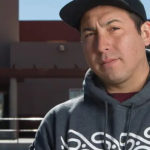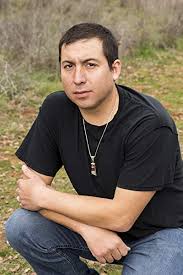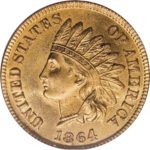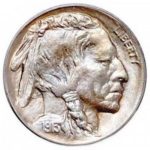The Big Oakland Powwow
A lot has been written lately about a “New Native Renaissance” in literature.
The buzz has focused on a mix of contemporary novelists: Tommy Orange, Terese Marie Mailhot, Katherena Vermette and others who blend an activist strain alongside their struggles with Native identity. They have a penchant for diving deep into psyches, a gift for internalizing their many tragic stories of Native life.
The old “Native Renaissance”? That dates to the late sixties, a movement that focused attention on poetry and novels by Native writers then emerging, a literature that still shimmers like the soft light of a desert sunset. N. Scott Momaday’s spellbinding novel “House of Dawn” (1969) was followed by the works of many others over the next several decades. Sitting here now, just looking back over my own all-too-shortlist of Native American readings, I’m partial to the poetic Joy Harjo, the postmodern Louise Erdrich, the ever-so-clever Sherman Alexie.
And while I’m not sure Alexie was ever in on the “Renaissance” thing, for the last two decades he has been my go-to. His edgy, poignant stories of “the rez” were refreshing and contemporary. His characters were carved from a thoroughly modern, if bittersweet, sensibility interwoven with the traditional genre. His books and stories were painted with an empathetic glow. He gave us all a new perspective, and for this he was handed a slew of awards—and even a few films based on his books.
Then, kaboom! In March of 2018, ten women stepped forward to accuse Alexie of sexual misconduct.
Then, kaboom! again. In February and June of 2018, seemingly out of nowhere, two unknown Native writers stepped into the spotlight.

Orange’s “There There” was published within a few months of Mailhot’s “Heart Berries.” Both books catapulted to the top of the must-read lists. Indeed both are stunning works.
For Tommy Orange, an odd variety of standard bearers gave standing ovations, from KQED in San Francisco to The New Yorker to The Paris Review. Speaking tours followed. And a new generation of Indigenous writers was hailed.
TOMMY ORANGE “THERE THERE” (2018)
Inner cities … and Native Americans? Well yes, and it is just this odd-sounding pairing that roils the narrative of Tommy Orange’s first novel. Of the Native people fleshed out in “There There,” some are interconnected, many are unconnected, all are steeped in a generational memory-loss that began many decades ago, a cultural drought of historic proportions.
And yet something lingers …
They used to call us sidewalk Indians. Called us citified, superficial, inauthentic, cultureless refugees, apples. An apple is red on the outside and white on the inside. But what we are is what our ancestors did. How they survived. We are the memories we don’t remember …
– from the Prologue

We have stories upon stories in this book, linked present-to-past and vice-versa. The narrative is “multivoice”—though Orange, in some interviews, has chosen to call it “polyphonic.” The characters come from several tribes, but have this in common: each is destined for a powwow in Oakland, California.
Let’s open the book, and pick a page.
* * *
Here now is Orvil Red Feather.
An awkward 14-year-old, an aspiring powwow dancer. A kid old enough to be dreaming of “Indianing.”
Orvil stands in front of Opal’s bedroom mirror with his regalia on all wrong. It isn’t backward, and actually he doesn’t know what he did wrong, but it’s off. He moves in front of the mirror and his feathers shake. He catches the hesitation, the worry in his eyes, there in the mirror. […] He wonders what she would do if she caught him. Ever since they were in her care, Opal had been openly against any of them doing anything Indian. She treated it all like was something they could decide for themselves when they were old enough. Like drinking or driving or smoking or voting. Indianing.
And … there was hope.
* * *
Here now is Opal Viola Victoria Bear Shield.
Orvil’s stand-in grandmother. A great aunt actually, half-sister of Jacquie Red Feather, both Cherokee. Jacquie (also a main character) is now estranged and living in New Mexico. It gets even crazier than that for the maze of interfamily relationships, intricate ties that are breathtaking in the scope of this fiction, even if not particularly rare in reality. For this is truth-telling at its best, spoken with utmost honesty in the voices of the victims, the descendants of conquered tribes.
Tunnel back a few chapters. What we already know (and what Orvil does not) is the backstory. Which lies in the trauma of the previous generation. We are transported to the late sixties, when (narrating as a young girl) Opal tells of a time when an influx of American Indians took over Alcatraz Island. That was when Opal and her older sister Jacquie left East Oakland with their mother. And thence to join forces with, well, let’s call it a great tide of idealistic Native Americans. Their mother was drunk constantly. Jacquie got pregnant. Opal had no friends.
As Opal recounts, the distraught family returned to Oakland.
Opal: “After Alcatraz, after our mom died, I kept my head down. I focused on school. Things went bad real fast.”
Jacquie: “Mom’s dead, she’s not coming back, and we’re alone, living with a guy we don’t even know who we’re supposed to call uncle.”
Deeply felt scars waft from the child’s nightmare into the present, as here, when Opal seems to be speaking from the present, and recalls the narrow escape from “uncle” pulled along the street by Jacquie:
We listened to the constant lapping sounds of cars passing by, like the sound of waves against the rocks on the shore of our uncertain future, in an Oakland that would never be the same as it was before our mom up and left on a jagged wind.
But still … there was hope.
* * *
Here now is Jacquie Red Feather.
Orvil’s real grandmother, a now much older and wiser sister. She is far, far from Oakland. She is passing time, on her way from New Mexico to the powwow. She is at a hotel in Arizona, trying to make things go right for herself for a change. On a pilgrimage, if you will, for a better life. First and foremost, she’s been sober (“ten days is the same as a year when you want a drink all the time”), and she’s made it through an afternoon at something like an AA, and at end of the day is tempted by a motel fridge full of booze. She grapples with options, she throws mental spears, she finally wraps the bottles in a towel and heads to the outdoor pool. Where she settles in. Where she dunks herself over and over. And where her voice and the narrator’s merge into one.
There’s an ache when you keep yourself from breathing. A relief when you come up for air. It was the same when you drank after telling yourself you wouldn’t. Both broke at a point. Both gave and took. … Jacquie got out of the pool and went to the towel. She heaved the bundle back, then threw it high into the air, into the water. … She watched the bottles sink to the bottom. She turned around, went out the gate and back up to her room. The text she sent Opal was just this: if I come to Oakland can I stay?
For one more day … there is hope.
* * *
Here now is the “Big Oakland Powwow.”
Fast approaching. What do we know about it? Well, we know everyone in the novel is pretty much headed there, for one reason or another, for better or for worse.
And you should know there are not three, but twelve main characters for us to follow. And every one of them has “Native roots,” a phrase Orange himself has used in interviews. All have their trajectories, which do not always cross, and of which many seem to have no connection, and, just as in life, some do, but some never quite make it. The powwow takes over the destiny of each character. Both the hope of the future and the failings of the past pull at their relationships, their psyches, some deeply scarred.
Orange never lets up on this stream-of-consciousness. He floats effortlessly into and out of each person’s head, familiar to us if only because we readers all have a tendency to speak to ourselves as well, upbraid ourselves, twisting and sidling through every choice ahead, grieving over every regret behind.
Quietly, crudely, maddeningly Orange is breaking some long-held rules of consistency here, but it works. It works because it’s real. And it works to excite each character within us.
Among them:
- … Blue, daughter given up by Jacquie long ago, the lost daughter, hitching a dangerous ride, frantically looking for some sane way to get from Oklahoma City to Oakland.
- … Bill Davis, groundskeeper at the Oakland A’s stadium who is a Vietnam Vet, dishonorably discharged, lover of baseball, former convict, puzzling over why a drone is flying above his field’s home plate.
- … Edwin Black, who has a degree but can’t get a job due to his enormous weight: “The internet is like a brain trying to figure out a brain. I depend on the internet for recall now. … Remembering itself is becoming old-fashioned.”
- … Thomas Frank, drummer and half-Indian, who was born with a “timbre of taps, the din of dings, silverware clangs, door knockers, knuckle cracks, head scratches” and whose long trip from the powwow to the BART station takes him through the dangerous world of the deeply-despised whites along the subway passages.
* * *
Here now is Dene Oxendene.
Received a grant to record a video for the powwow and interview those involved. His video with Calvin, who is friends with Blue and on the powwow planning team, starts when Dene turns on the camera. He asks Calvin to state his name and tribe and involvement.
“Dad never talked about being Native and shit, to the point that we don’t even know what tribe we are on.” Dad? “Wasn’t home hardly ever.” Mom? “Mom has Native blood on her Mexican side but she doesn’t know too much about that.” The powwow? “I got robbed in the parking lot about to go to a powwow at Laney College … so this one coming up will be my first.”
Dene: “So you don’t feel, like, any kind of Native pride?”
Calvin: “Honestly I just don’t feel right trying to say something that doesn’t feel true. … I just don’t know about this blood shit.”
* * *
Here now is Calvin Johnson.
Calvin is small potatoes, a sometime cheat and drug runner in and around East Oakland. Who, by the way, is in serious trouble. He is indebted to a couple of gun-toting “debt collectors” (Charles and Carlos) who are themselves indebted to a bankrolling gangsta (Octavio), and who has “a dark blue custom-made four-door Chevy El Camino” to show for his standing. Their guns are untraceable, 3D-printed. Calvin’s debt is overdue by a day or two.
The punks come at night for him. They arrive at Calvin’s sister’s house and take Calvin out to see Octavio. They are all-business, intimidating. They share every drink, straight from the bottle. They pass around blunts with a little angel dust sprinkled in (or at least that’s Calvin’s guess, based on the colors of the streetlights).
Then there’s a scene at Octavio’s, conducting the messy business. We need only mention here that Octavio seriously reminds Calvin about a comment that Calvin himself once made: that there’s like $50,000 in prize money and receipts held at the powwow gate. Just waiting to be picked up.
* * *
 Back in the ’90s, when Alexie’s stories had begun taking root, the young Orange was playing roller hockey in East Oakland. He has that build, the body of a boxer and the streetwise savvy to go with it. By his own admission, growing up, he had never taken an interest in books. Any books.
Back in the ’90s, when Alexie’s stories had begun taking root, the young Orange was playing roller hockey in East Oakland. He has that build, the body of a boxer and the streetwise savvy to go with it. By his own admission, growing up, he had never taken an interest in books. Any books.
But after high school, Orange got himself a job at a used bookstore. The gig radicalized him.
I found writers like Borges, Kafka, Robert Walser, Clarice Lispector, and, eventually, John Kennedy Toole and Sylvia Plath. “A Confederacy of Dunces” and “The Bell Jar” were pretty important to me as novels. I fell in love with reading while working at that bookstore, and felt like I was playing catchup for the next ten years. […] I knew I wanted to write a novel about Native people living in Oakland. My wanting to write it largely had to do with there not already being a novel about Native people who live in cities, and very few novels set in Oakland.
– Interview with Tommy Orange, The New Yorker, March 26, 2018
Orange’s writing is quick and quirky and contemporary, his pacing breathless and exhilarating. His great gift is an uncanny ability to share with us each and every one of these twelve Native characters in their own unique voice, as a living, breathing, struggling, striving individual.
Orange does not have the poetic touch of a Momaday, or the quiet desperation of an Erdrich, or the clever shtick of an Alexie. His novel itself sails along in a constant sea breeze of anguish and gab and sometimes fearful internal monologue. The world is a daily struggle for each and every one of his characters, zigzagging along like cross-gusts of a blazing wind, through hope and despair.
* * *
 Much has been made of the Prologue and Interlude in this book, sections that comprise an Indian perspective on the history of the white man’s conquest. It is situating and compelling, a screed so well written that he even folds in a number of perversely interesting factoids—such as an explanation of modern Indian family names, and how, following the Indian wars and conquests, names were dealt out by the conquering soldiers, as each and every Native person was catalogued and registered.
Much has been made of the Prologue and Interlude in this book, sections that comprise an Indian perspective on the history of the white man’s conquest. It is situating and compelling, a screed so well written that he even folds in a number of perversely interesting factoids—such as an explanation of modern Indian family names, and how, following the Indian wars and conquests, names were dealt out by the conquering soldiers, as each and every Native person was catalogued and registered.
Our heads are on flags, jerseys, and coins. Our heads were on the penny first, of course, the Indian cent, and then on the buffalo nickel, both before we could even vote as a people — which, like the truth of what happened in history all over the world, and like all that spilled blood from slaughter, is now out of circulation.
– from the Prologue
The author takes deep dives into psyches made up of fears and past hauntings. In their best moments, their individual spirits sparkle through the sunlit dust of their penniless lives.

The known destination, the center of gravity in this book, is “The Big Oakland Powwow.” Everyone in this greater-than-fictional world is challenged by it, drawn to it, and determined to join it. The journey there is tinged by broken dreams, broken homes, families torn apart by lack of work, lack of money, and lack of opportunity—but also powered by a desire for sustaining the greater good. Some are experiencing a kinship they had never known before. Others are simply working together for the first time, making something big happen.
Calvin isn’t there when the powwow opens. Maybe he’s not beyond redemption, but almost. His problem isn’t hanging with the wrong people. His problem is he’s too stoned most of the time to get his life in any kind of order.
Let’s just say that, in the end, this book is not unlike a wildfire that begins with a few embers. House by house, field by field, crest by crest, mountain by mountain—the fire takes on a purpose, a cleansing, but eventually explodes in a blazing mess of uncontrollable heat.
Leave a Reply